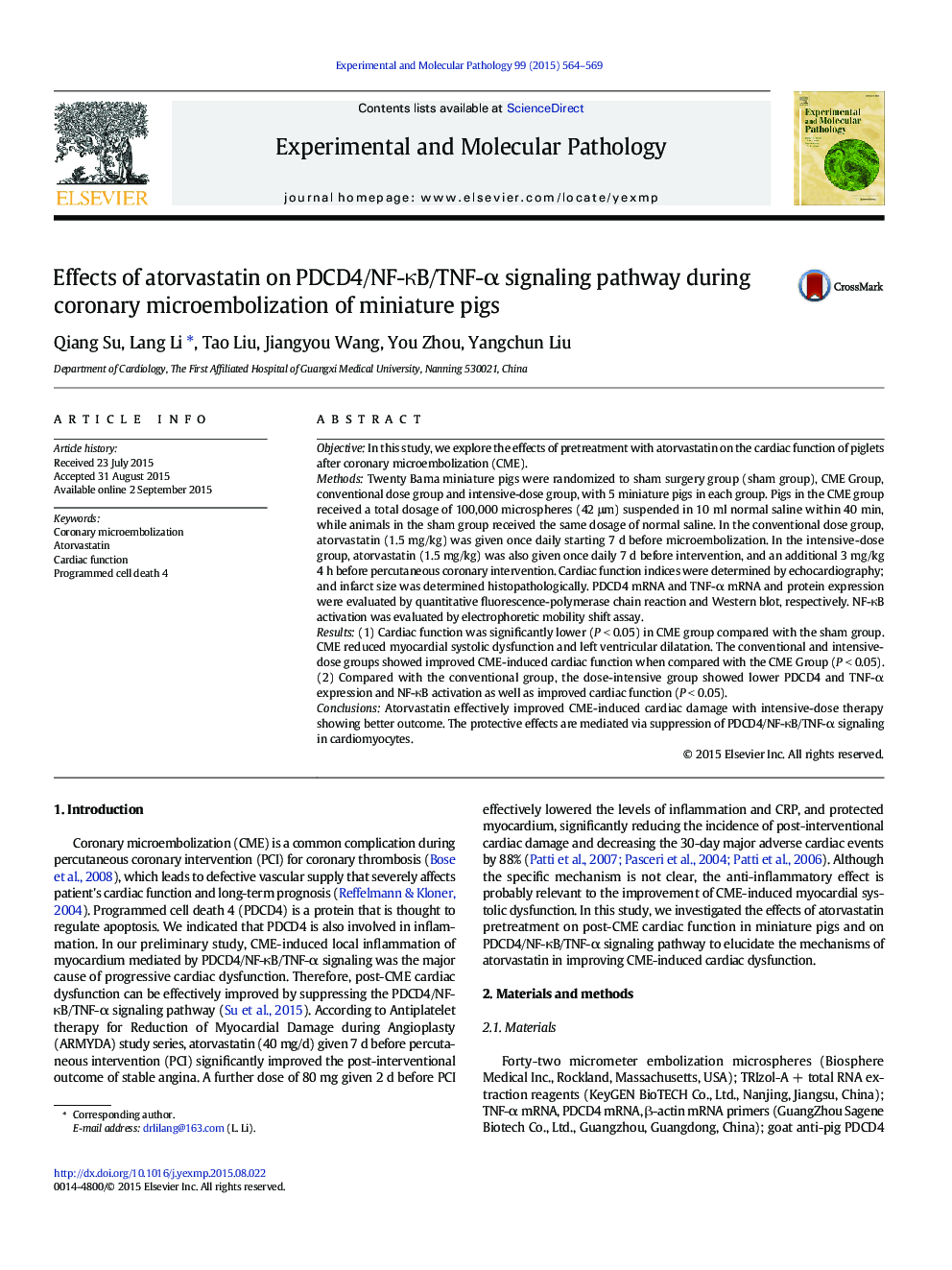| کد مقاله | کد نشریه | سال انتشار | مقاله انگلیسی | نسخه تمام متن |
|---|---|---|---|---|
| 2774896 | 1152299 | 2015 | 6 صفحه PDF | دانلود رایگان |

ObjectiveIn this study, we explore the effects of pretreatment with atorvastatin on the cardiac function of piglets after coronary microembolization (CME).MethodsTwenty Bama miniature pigs were randomized to sham surgery group (sham group), CME Group, conventional dose group and intensive-dose group, with 5 miniature pigs in each group. Pigs in the CME group received a total dosage of 100,000 microspheres (42 μm) suspended in 10 ml normal saline within 40 min, while animals in the sham group received the same dosage of normal saline. In the conventional dose group, atorvastatin (1.5 mg/kg) was given once daily starting 7 d before microembolization. In the intensive-dose group, atorvastatin (1.5 mg/kg) was also given once daily 7 d before intervention, and an additional 3 mg/kg 4 h before percutaneous coronary intervention. Cardiac function indices were determined by echocardiography; and infarct size was determined histopathologically. PDCD4 mRNA and TNF-α mRNA and protein expression were evaluated by quantitative fluorescence-polymerase chain reaction and Western blot, respectively. NF-κB activation was evaluated by electrophoretic mobility shift assay.Results(1) Cardiac function was significantly lower (P < 0.05) in CME group compared with the sham group. CME reduced myocardial systolic dysfunction and left ventricular dilatation. The conventional and intensive-dose groups showed improved CME-induced cardiac function when compared with the CME Group (P < 0.05). (2) Compared with the conventional group, the dose-intensive group showed lower PDCD4 and TNF-α expression and NF-κB activation as well as improved cardiac function (P < 0.05).ConclusionsAtorvastatin effectively improved CME-induced cardiac damage with intensive-dose therapy showing better outcome. The protective effects are mediated via suppression of PDCD4/NF-κB/TNF-α signaling in cardiomyocytes.
Journal: Experimental and Molecular Pathology - Volume 99, Issue 3, December 2015, Pages 564–569